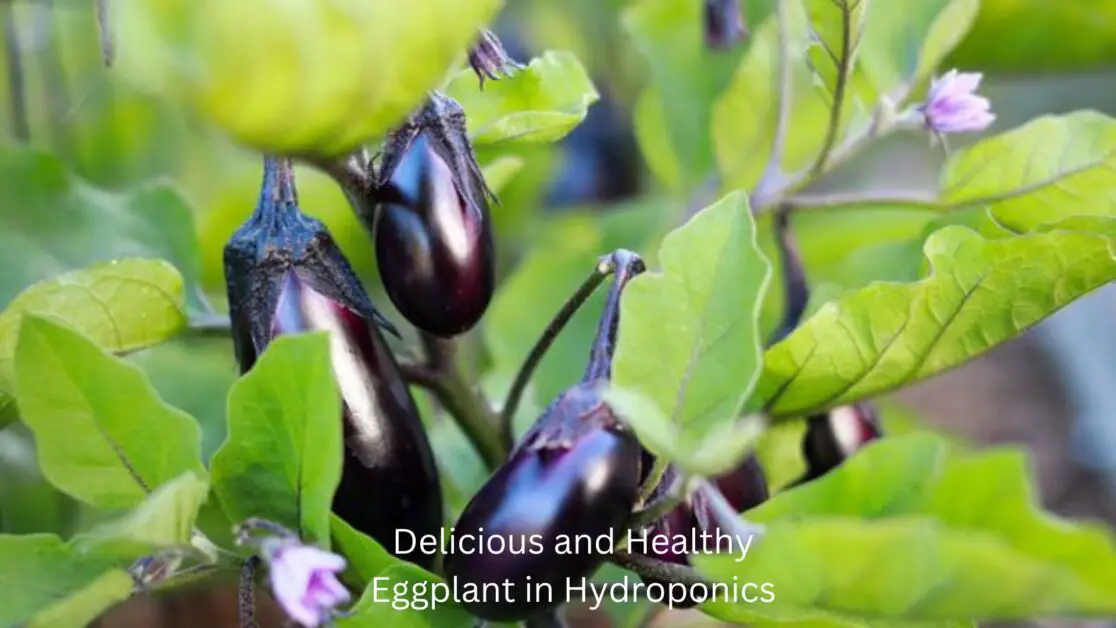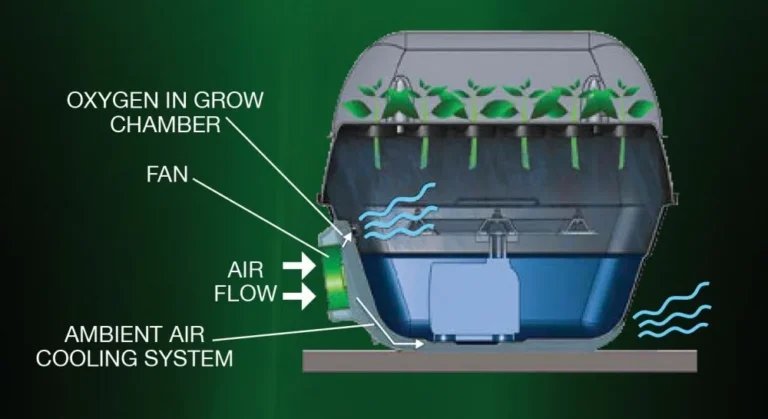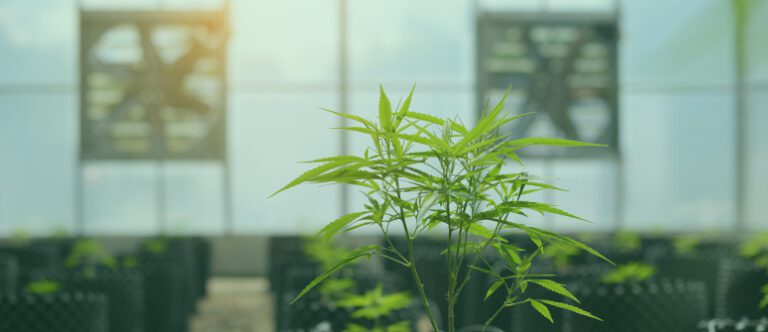Hydroponic Eggplant: Super way to Grow Delicious and Healthy Eggplant in Hydroponics
Table of Contents
Understanding the Basics of Hydroponics for Eggplant Cultivation: Delicious and Healthy Eggplant in Hydroponics
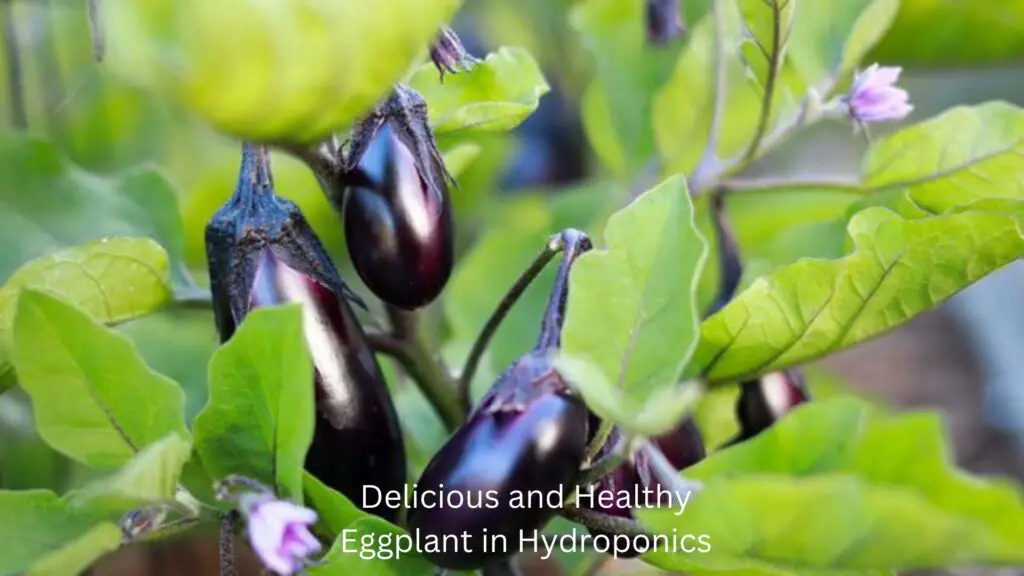
Delicious and Healthy Eggplant in Hydroponics is a method of plant cultivation that does not rely on traditional soil-based growing techniques. Instead, it involves growing plants in a nutrient-rich water solution, allowing for precise control over the plant’s environment and nutrient intake. This technique has gained popularity in recent years, particularly among gardening enthusiasts looking to maximize their yields and grow a variety of crops, including eggplants.
One of the key advantages of using Delicious and Healthy Eggplant in Hydroponics cultivation is the ability to grow plants in a controlled environment, free from pests, diseases, and weeds commonly found in traditional soil-based gardens. This allows for healthier plants and higher yields. Additionally, hydroponics systems use significantly less water compared to traditional gardening methods, making them more environmentally sustainable. By providing plants with the optimal balance of nutrients and water, hydroponic growers can ensure that their eggplants receive everything they need for healthy growth and development.
However, it is important to note that hydroponic systems do require some additional knowledge and equipment compared to traditional gardening methods. Setting up a hydroponic system for eggplant cultivation involves understanding the different types of systems available, such as nutrient film technique (NFT) or deep water culture (DWC), and selecting the right one for your needs. Additionally, ensuring proper lighting conditions, maintaining the correct nutrient solution, and controlling temperature and humidity levels are crucial for successful hydroponic eggplant cultivation. These factors, along with effective pest and disease management strategies, pruning techniques, and pollination methods, all play a vital role in ensuring healthy plant growth and optimal yields in hydroponic eggplant cultivation.
Selecting the Right Eggplant Varieties for Hydroponic Growing Systems: Delicious and Healthy Eggplant in Hydroponics
Selecting the right eggplant varieties is crucial for successful hydroponic growing systems. With a wide range of options to choose from, it is essential to consider key factors that will ensure optimal plant development and high yields in your hydroponic setup.
When choosing Delicious and Healthy Eggplant in Hydroponics, it is important to look for cultivars that are well-suited to controlled environments and have a compact growth habit. Compact varieties are ideal for hydroponics as they require less space and can be easily trained and pruned to maximize productivity within limited growing areas. Additionally, selecting cultivars that have a high resistance to common pests and diseases prevalent in hydroponic systems can help minimize the need for chemical interventions, leading to healthier plants and reduced maintenance efforts.
Consider the desired characteristics of the final eggplant product as well. Different varieties can offer variations in size, shape, color, and flavor. Knowing your target market and consumer preferences will assist you in selecting the most suitable eggplant varieties for your hydroponic system. For example, if you are planning to market mini eggplants for their unique appearance and convenience, varieties like ‘Fairy Tale’ or ‘Melanzana Rossa’ would be excellent choices.
Remember, selecting the right eggplant varieties for hydroponic growing systems is a critical step in ensuring successful cultivation. By considering factors such as compact growth habit, resistance to pests and diseases, and market preferences, you can set yourself up for a bountiful harvest of healthy and flavorful eggplants.
Setting Up the Ideal System for Delicious and Healthy Eggplant in Hydroponics Cultivation
When it comes to setting up an ideal hydroponic system for eggplant cultivation, there are several important factors to consider. First and foremost, you’ll need to choose the right type of system for your specific needs and available space. Common options for hydroponic systems include nutrient film technique (NFT), deep water culture (DWC), and ebb and flow (also known as flood and drain).
Regardless of the system you choose, it’s crucial to ensure proper lighting conditions for optimal eggplant growth. Eggplants thrive under full-spectrum LED grow lights, which provide the necessary wavelengths for photosynthesis. Aim for a minimum of 12 hours of light per day, adjusting the intensity to mimic natural sunlight. Additionally, consider supplementing with ultraviolet (UV) light to enhance plant development and fruit quality.
In addition to lighting, maintaining the correct nutrient solution is vital for healthy eggplant development. The nutrient solution should contain all the essential elements required for plant growth, including macronutrients (such as nitrogen, phosphorus, and potassium) and micronutrients (such as iron, manganese, and zinc). Regularly monitor the nutrient solution’s pH levels and adjust as necessary to ensure optimal nutrient uptake. This can be done using a pH meter or pH test strips, with the optimal pH range for eggplants falling between 5.5 and 6.5.
Furthermore, controlling temperature and humidity levels is crucial for successful hydroponic eggplant growth. Eggplants thrive in temperatures ranging from 70°F to 85°F (21°C to 29°C) during the day, with a slight drop of around 10°F (6°C) in the evening. Proper ventilation and airflow are essential to prevent heat buildup and maintain optimal conditions. Additionally, aim for a relative humidity (RH) level between 50% and 70% to minimize the risk of fungal diseases.
Lastly, it’s important to implement effective pest and disease management strategies in your hydroponic system. Regularly inspect your plants for any signs of pests or diseases, such as aphids, whiteflies, or powdery mildew. Consider using biological controls, such as beneficial insects or organic fungicides, to minimize the use of chemicals. Maintaining proper hygiene within your system by regularly cleaning and sanitizing equipment can also help prevent the spread of pathogens.
Setting up the ideal Delicious and Healthy Eggplant in Hydroponics cultivation requires careful consideration of lighting, nutrient solutions, temperature, humidity, and pest management strategies. By addressing these factors with expertise and precision, you can create an environment that promotes healthy growth and bountiful harvests. Remember to regularly monitor and adjust these parameters to ensure optimal conditions throughout the growing process.
Providing the Optimal Lighting Conditions for Delicious and Healthy Eggplant in Hydroponics
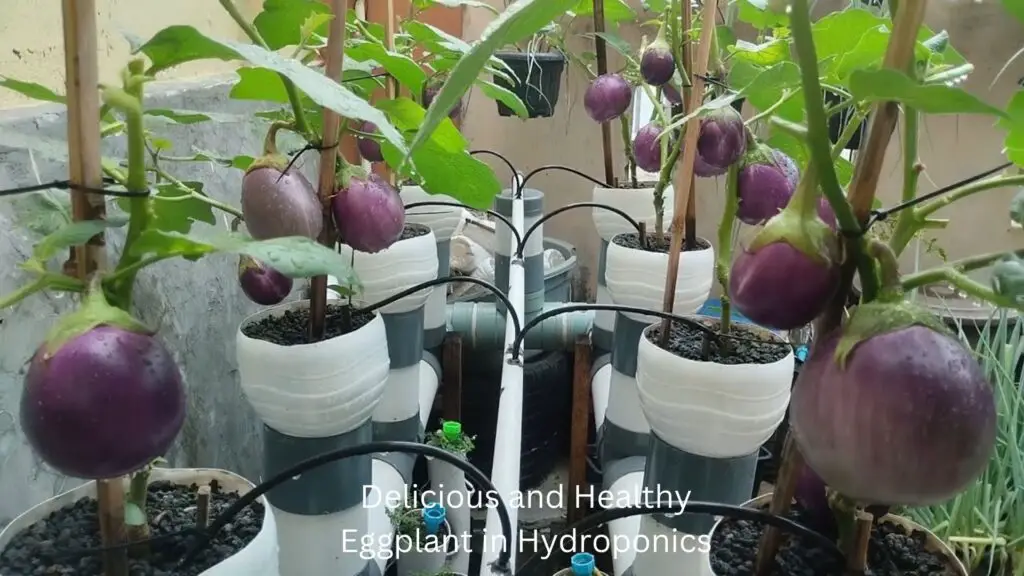
Proper lighting is crucial for the successful cultivation of Delicious and Healthy Eggplant in Hydroponics. As a photosynthetic organism, eggplants require the right amount and quality of light to carry out their metabolic processes effectively. In hydroponic setups, where the plants rely solely on artificial light sources, it becomes even more critical to provide optimal lighting conditions.
When it comes to lighting for Delicious and Healthy Eggplant in Hydroponics growth, there are two primary factors to consider: light intensity and light spectrum. In terms of intensity, eggplants thrive under high light levels, typically between 800 and 1000 micromoles per square meter per second (µmol/m²/s). This can be achieved by using high-intensity discharge (HID) lamps, such as metal halide (MH) or high-pressure sodium (HPS) lights. LED grow lights are also becoming increasingly popular due to their energy efficiency and ability to provide targeted lighting.
In addition to intensity, the light spectrum is equally important. Eggplants require a spectrum that includes both blue and red wavelengths. Blue light, with a wavelength of around 450-480 nanometers (nm), promotes leaf growth and development, while red light, around 630-660 nm, stimulates flowering and fruiting. To achieve the desired spectrum, many growers opt for full-spectrum LED grow lights, which can be adjusted to provide the necessary ratios of blue and red light throughout the plant’s growth stages.
Overall, providing the optimal lighting conditions for hydroponic eggplant growth is essential for healthy and productive plants. By ensuring the right light intensity and spectrum, growers can maximize photosynthesis, enhance plant development, and ultimately achieve higher yields of flavorful and nutritious eggplants.
Maintaining the Proper Nutrient Solution for Delicious and Healthy Eggplant in Hydroponics
Maintaining a proper nutrient solution is crucial for the healthy development of eggplants in a hydroponic system. As a gardener or hydroponics enthusiast, ensuring that your plants receive the right balance of nutrients is essential for their overall growth and productivity.
One of the key considerations when maintaining a nutrient solution is to monitor the pH levels. Eggplants thrive in a slightly acidic environment, with an optimal pH range between 5.5 and 6.5. Regularly testing the pH of your nutrient solution using a reliable pH meter and adjusting it as needed will help create an environment where eggplants can absorb nutrients efficiently.
Another aspect to focus on is the composition of the nutrient solution. Eggplants require a well-balanced mixture of essential macro and micronutrients to thrive. Common nutrients required for healthy eggplant development include nitrogen, phosphorus, potassium, calcium, magnesium, and trace elements like iron, manganese, and zinc. By using high-quality hydroponic nutrient solutions specifically designed for eggplants or by following a predetermined formula, you can ensure that your plants receive the necessary nutrients for optimal growth.
When it comes to delivering the nutrient solution to the plants, there are various hydroponic systems to consider, such as the nutrient film technique (NFT), deep water culture (DWC), or drip irrigation. Each system has its strengths and weaknesses, so it is important to choose the one that suits your requirements and resources best. Additionally, monitoring and adjusting the nutrient solution regularly, based on the growth stage of your eggplants, will help ensure that their nutrient needs are met throughout their lifecycle.
Overall, maintaining a proper nutrient solution is the backbone of successful Delicious and Healthy Eggplant in Hydroponics cultivation. By focusing on pH levels, nutrient composition, and delivery methods, you can provide your plants with the ideal conditions for healthy growth and maximize their yield potential. Stay tuned for more in-depth information on hydroponic eggplant cultivation in the upcoming sections of this article.
Managing pH Levels in Delicious and Healthy Eggplant in Hydroponics Cultivation
To ensure healthy growth and optimal eggplant development in hydroponic systems, managing the pH levels is crucial. pH, which measures the acidity or alkalinity of the nutrient solution, plays a significant role in nutrient availability and absorption by the plants.
The ideal pH range for hydroponic eggplant cultivation is slightly acidic, between 5.8 and 6.2. Within this range, key nutrients like phosphorus, potassium, and calcium are more readily available to the plants, promoting robust growth and fruitful yield. Deviations from this range can lead to nutrient deficiencies or toxicities, negatively impacting plant health and productivity.
To effectively manage pH levels, regular monitoring and adjustment are necessary. Investing in a reliable pH meter or test kit is crucial for accurate measurements. If the pH deviates from the desired range, adjustments can be made using pH up or pH down solutions, which are commercially available. Gradual adjustments are recommended, as drastic changes can result in stress for the plants. By maintaining the appropriate pH levels, hydroponic gardeners can create an optimal environment for the successful cultivation of eggplants.
Controlling Temperature and Humidity for Successful Delicious and Healthy Eggplant in Hydroponics
Temperature and humidity play vital roles in the successful growth of eggplants in hydroponic systems. Maintaining the right environmental conditions is crucial for optimizing plant growth, productivity, and overall health.
Firstly, it is essential to provide the correct temperature range for hydroponic eggplant cultivation. The ideal temperature for eggplants ranges between 70°F and 85°F (21°C and 29.5°C). This range allows for optimal photosynthesis, nutrient absorption, and metabolic processes. Any temperature below 60°F (15.5°C) can stunt the plants’ growth, while excessively high temperatures above 95°F (35°C) can lead to decreased fruit set, blossom drop, and overall stress.
Humidity levels also require careful management to maintain a healthy growing environment for hydroponic eggplants. Eggplants thrive in a relative humidity range of 40% to 70%. Higher humidity levels can result in increased incidence of diseases, such as powdery mildew, while lower humidity levels can lead to inadequate moisture uptake and hinder nutrient absorption. Regular monitoring and control of humidity levels using humidifiers, dehumidifiers, or ventilation systems are essential to ensure optimal conditions for plant growth.
In the next section, we will explore effective strategies for implementing pest and disease management techniques in hydroponic systems, further enhancing the success of eggplant cultivation. Stay tuned for expert advice on preventing and controlling common issues faced in this method of farming.
Implementing Effective Pest and Disease Management Strategies in Delicious and Healthy Eggplant in Hydroponics

Implementing effective pest and disease management strategies is crucial in hydroponics to ensure the health and productivity of eggplant crops. Due to the absence of soil as a natural barrier, hydroponic systems can be more susceptible to pests and diseases. However, with proper planning, monitoring, and preventive measures, gardeners can successfully protect their eggplant plants and achieve optimal yields.
One of the key strategies in pest and disease management is implementing a comprehensive monitoring system. Regularly inspecting plants for any signs of pests or diseases is essential for early detection and intervention. This can be done by visually examining the plants and leaves, checking for any abnormal growth or discoloration, and using sticky traps or pheromone traps to catch potential pests. Additionally, installing a temperature and humidity monitoring system can help identify optimal conditions for pest and disease development, allowing for proactive measures to be taken. Utilizing digital technology and smartphone applications tailored to hydroponic gardening can further aid in the monitoring process, providing real-time updates and alerts when issues arise.
To prevent and control pest infestations, gardeners should implement cultural practices such as maintaining a clean and sanitized growing environment. Regularly removing dead leaves, spent flowers, and plant debris can minimize the chances of pests and diseases spreading. Additionally, integrating biological controls like beneficial insects or nematodes can help reduce pest populations naturally without the need for chemical interventions. Careful selection and rotation of crops can also help prevent specific pests and diseases from recurring.
When it comes to disease management, an integrated approach combining cultural practices, biological controls, and the careful use of appropriate fungicides can be effective. Ensuring proper air circulation and ventilation within the hydroponic system can help minimize the favorable conditions for disease development. Additionally, implementing a strict sanitation routine, including sterilizing tools and equipment, can prevent the spread of pathogens. Effective irrigation practices, such as using drip systems instead of overhead watering, can further reduce the risk of diseases caused by excess moisture.
By diligently implementing pest and disease management strategies in hydroponics, gardeners can protect their eggplant crops and maintain a healthy growing environment. It is important to stay proactive, regularly monitor for any signs of pests or diseases, and take appropriate and timely action to prevent or control infestations. With careful attention and consistent care, gardeners can ensure successful and thriving hydroponic eggplant cultivation.
Pruning and Training Techniques for Enhanced Delicious and Healthy Eggplant in Hydroponics Yields
Pruning and training techniques are essential for enhancing the yields of eggplants grown in hydroponic systems. Proper pruning helps to maximize the overall growth and productivity of the plants, while training techniques ensure that the plants develop a strong and sturdy structure to support the weight of the fruit.
When it comes to pruning, it is important to regularly remove any suckers or lateral branches that emerge from the base of the plant. These suckers divert energy away from the main stem and can compromise the overall growth of the plant. Additionally, pruning off any diseased or damaged foliage can help prevent the spread of pests and diseases throughout the crop.
In terms of training techniques, one effective method is to use trellises or stakes to support the plants as they grow. This helps to prevent the eggplant stems from bending or breaking under the weight of the fruit, ensuring that the plants remain upright and healthy. Tying the stems to the supports gently using soft twine or plant ties can help guide their growth and prevent them from sprawling across the hydroponic system.
By implementing proper pruning and training techniques, hydroponic eggplant growers can promote optimal growth, improve the structure of the plants, and ultimately increase the overall yield of their crop.
Understanding the Pollination Process and Ensuring Fruit Set in Hydroponic Eggplants
The pollination process is a crucial step in ensuring successful fruit set in hydroponic eggplants. As these plants are grown in a controlled environment without the aid of wind or insects for natural pollination, it becomes necessary for gardeners to manually facilitate this process. While eggplants have perfect flowers containing both male (stamen) and female (pistil) reproductive organs, they still need external assistance for pollination to occur.
To ensure efficient pollination, one method that can be employed is gently tapping the flower’s stem or flicking it with a soft brush. This action helps transfer the pollen from the anthers to the stigma, enabling the fertilization process. Another effective technique is using an electric toothbrush or a commercially available pollination wand to vibrate the flowers gently. The vibrations mimic the natural movement caused by wind or insects, dislodging the pollen and increasing the chances of successful pollination. Regular monitoring of the flowers and performing these pollination techniques is essential to maximize fruit set in hydroponic eggplants and achieve optimal yields.
As hydroponic eggplant cultivation does not rely on outside pollinators, gardeners must take on the role of pollinators themselves. By understanding the pollination process and employing manual techniques, gardeners can ensure the successful fertilization of eggplant flowers and enjoy a bountiful harvest. Proper knowledge and hands-on involvement in this crucial aspect of hydroponic eggplant cultivation will help gardening enthusiasts achieve fruitful and satisfying results.
Harvesting and Storing Delicious and Healthy Eggplant in Hydroponics for Maximum Flavor and Nutritional Value

Harvesting and storing Delicious and Healthy Eggplant in Hydroponics correctly is crucial to ensure maximum flavor and nutritional value. When it comes to harvesting, it is important to wait until the eggplants have reached their mature size and color. This will vary depending on the variety, so it is essential to know the specific characteristics of the eggplant variety being cultivated. Generally, eggplants are ready for harvest when they have a glossy skin, firm texture, and vibrant color.
To harvest the eggplants, it is recommended to use a sharp knife or shears to cut the fruit from the plant, leaving a short stem attached. Avoid twisting or pulling the eggplants off the plant, as this can damage the fruit or even break the stem. Gently handle the harvested eggplants to prevent any bruising or injury.
After harvesting, proper storage is essential for preserving the flavor and nutritional value of the hydroponic eggplants. Unlike regular field-grown eggplants, Delicious and Healthy Eggplant in Hydroponics may have a gentler flavor that can be affected by improper storage conditions. It is recommended to store the harvested eggplants in a cool and dry place with a temperature around 50-55°F (10-13°C) and a relative humidity of around 85-90%. This helps to prevent moisture loss, wilting, and decay. It is advisable to use a clean and ventilated storage container to avoid any cross-contamination or moisture buildup. Regularly check the stored eggplants for any signs of spoilage, and promptly remove any damaged fruits to prevent the spread of decay. By following these guidelines, you can enjoy hydroponic eggplants with optimal flavor and nutritional value.
Troubleshooting Common Issues in Delicious and Healthy Eggplant in Hydroponics Cultivation
When it comes to hydroponic eggplant cultivation, it is not uncommon to encounter certain issues that may hinder the plants’ growth and overall productivity. One common problem that growers may face is nutrient deficiency. Eggplants require a balanced supply of essential nutrients, and any imbalance or deficiency can lead to stunted growth, discolored leaves, or poor fruit development. To troubleshoot this issue, it is crucial to regularly monitor the nutrient levels in the hydroponic system and ensure that all necessary macro and micronutrients are adequately supplied.
Another common issue in hydroponic eggplant cultivation is the occurrence of pests and diseases. Just like traditional soil-based cultivation, hydroponic systems are not immune to destructive pests such as aphids, spider mites, or whiteflies. These pests can rapidly multiply and weaken the plants if not properly controlled. Additionally, diseases such as powdery mildew or bacterial infections can also wreak havoc on hydroponic eggplants. Effective pest and disease management strategies must be implemented, such as regular inspection, the use of biological controls, proper sanitation protocols, and if necessary, targeted application of organic or approved pesticides to prevent the infestation or spread of pests and diseases.
By addressing these common issues in Delicious and Healthy Eggplant in Hydroponics cultivation, growers can ensure the health and productivity of their plants. Regular monitoring of nutrient levels, implementing pest and disease management strategies, and maintaining a clean and sanitary growing environment are key components of successful troubleshooting in hydroponic eggplant cultivation. By being proactive and taking appropriate action, garden enthusiasts can overcome these challenges and enjoy a bountiful harvest of delicious and nutritious hydroponic eggplants.
Here’s a table outlining considerations for growing delicious and healthy eggplants in a hydroponic system:
| Aspect | Consideration: Delicious and Healthy Eggplant in Hydroponics |
|---|---|
| Eggplant Variety | Choose a variety known for its flavor and texture, such as Black Beauty or Japanese Eggplant. |
| Hydroponic System | Select a hydroponic system suitable for eggplants, such as nutrient film technique (NFT) or deep water culture (DWC). |
| Growing Medium | Consider using a soilless medium like coconut coir or perlite to provide support and aeration for the plants. |
| Nutrient Solution | Use a well-balanced hydroponic nutrient solution, adjusting the potassium and phosphorus levels for fruiting plants. |
| pH Level | Maintain the pH level of the nutrient solution within the optimal range (5.5 to 6.5) for nutrient uptake. |
| Temperature and Humidity | Keep the growing environment within the ideal temperature range (75-85°F or 24-29°C) for optimal growth. Monitor humidity levels to prevent diseases. |
| Lighting | Provide sufficient light, using high-quality LED grow lights with the right spectrum for the different growth stages of eggplants. |
| Spacing and Support | Properly space plants and provide support for the growing eggplants, especially when the fruits become heavy. |
| Pollination | If growing indoors, consider hand pollination using a small brush to transfer pollen between flowers for fruit development. |
| Pruning and Training | Prune and train the plants to encourage airflow, reduce disease risk, and focus energy on fruit production. |
| Pest and Disease Control | Implement preventive measures, like introducing beneficial insects, and regularly inspect for pests and diseases. |
| Harvesting | Harvest eggplants when they reach the desired size and have a glossy appearance. Use sharp scissors or pruning shears to avoid damage. |
| Continuous Monitoring | Regularly monitor nutrient levels, pH, and overall plant health to address any issues promptly and ensure consistent growth. |
Adapting these considerations to the specific requirements of your hydroponic setup will contribute to the successful cultivation of delicious and healthy eggplants.
Exploring Advanced Techniques and Innovations in Hydroponic Eggplant Production
Hydroponic eggplant production has seen significant advancements in recent years, with innovative techniques and technologies helping to optimize yields and improve overall crop quality. One such innovation is the use of vertical farming systems, which capitalize on limited space by stacking multiple layers of growing beds. This method not only maximizes production potential but also provides greater control over environmental conditions, such as light intensity and temperature. Additionally, vertical farming systems can be equipped with automated nutrient delivery systems, ensuring precise dosing and minimizing human error.
Another advanced technique in hydroponic eggplant production is the integration of artificial intelligence (AI) and machine learning. AI-powered systems collect and analyze real-time data from sensors placed in the growing environment, enabling growers to monitor and adjust parameters like temperature, humidity, and nutrient levels remotely. By consistently fine-tuning the conditions, AI-driven systems help optimize plant growth and mitigate potential issues. Furthermore, machine learning algorithms can identify patterns and correlations in the data, providing valuable insights into the crop’s needs and enabling growers to make informed decisions for better crop management.
The exploration of advanced techniques and innovations in hydroponic eggplant production is an ongoing endeavor, driven by the pursuit of better yields, improved resource efficiency, and sustainable farming practices. By embracing these advancements, growers have the opportunity to enhance their production capabilities and contribute to the development of a more resilient and productive agricultural industry. As research continues, it is essential to stay updated on the latest innovations, collaborate with experts in the field, and leverage technology to push the boundaries of hydroponic eggplant cultivation further.
What is Delicious and Healthy Eggplant in Hydroponics?
Hydroponics is a method of growing plants without soil, where the plants are instead grown in a nutrient-rich water solution.
Why is Delicious and Healthy Eggplant in Hydroponics cultivation?
Hydroponics provides better control over growing conditions, allows for higher yields, conserves water, and reduces the risk of soil-borne diseases.
How do I select the right Delicious and Healthy Eggplant in Hydroponics growing systems?
It is important to choose eggplant varieties that are well-suited for growing in hydroponic systems, such as those that have a compact growth habit and are disease-resistant.
What is the ideal lighting condition for Delicious and Healthy Eggplant in Hydroponics growth?
Eggplants require full spectrum artificial lighting that provides the necessary intensity and duration for healthy growth, typically using LED grow lights.
How do I maintain the proper nutrient solution for healthy eggplant development?
Regular monitoring and adjusting of the nutrient solution’s pH and nutrient levels is crucial to ensure optimal nutrient uptake by the eggplants.
How do I manage pH levels in Delicious and Healthy Eggplant in Hydroponics cultivation?
pH levels can be adjusted using pH up or pH down solutions to maintain the ideal range of 5.5-6.5 for hydroponic eggplant cultivation.
What are some effective pest and disease management strategies in hydroponics?
Implementing proper sanitation practices, using beneficial insects, employing biological control methods, and regularly inspecting plants for any signs of pests or diseases are effective strategies.
What are the pruning and training techniques for enhanced Delicious and Healthy Eggplant in Hydroponics yields?
Pruning involves removing excess foliage and side shoots to direct the plant’s energy towards fruit production, while training involves supporting the main stem and promoting upward growth.
How do I ensure fruit set in hydroponic eggplants?
Manual pollination can be done by gently shaking the flowers to release the pollen or using a small paintbrush to transfer pollen from one flower to another.
How do I harvest and store Delicious and Healthy Eggplant in Hydroponics for maximum flavor and nutritional value?
Eggplants should be harvested when they reach their desired size and firmness and can be stored in a cool, dry place for up to a week or refrigerated for longer shelf life.
What are some common issues in Delicious and Healthy Eggplant in Hydroponics cultivation and how can they be resolved?
Common issues include nutrient deficiencies, pH imbalances, pest infestations, and inadequate lighting. These can be resolved by adjusting nutrient levels, balancing pH, implementing pest control measures, and providing adequate lighting.
What are some advanced techniques and innovations in hydroponic eggplant production?
Advanced techniques and innovations may include the use of automation and remote monitoring systems, vertical farming setups, and the integration of artificial intelligence for optimized plant growth and resource management.

